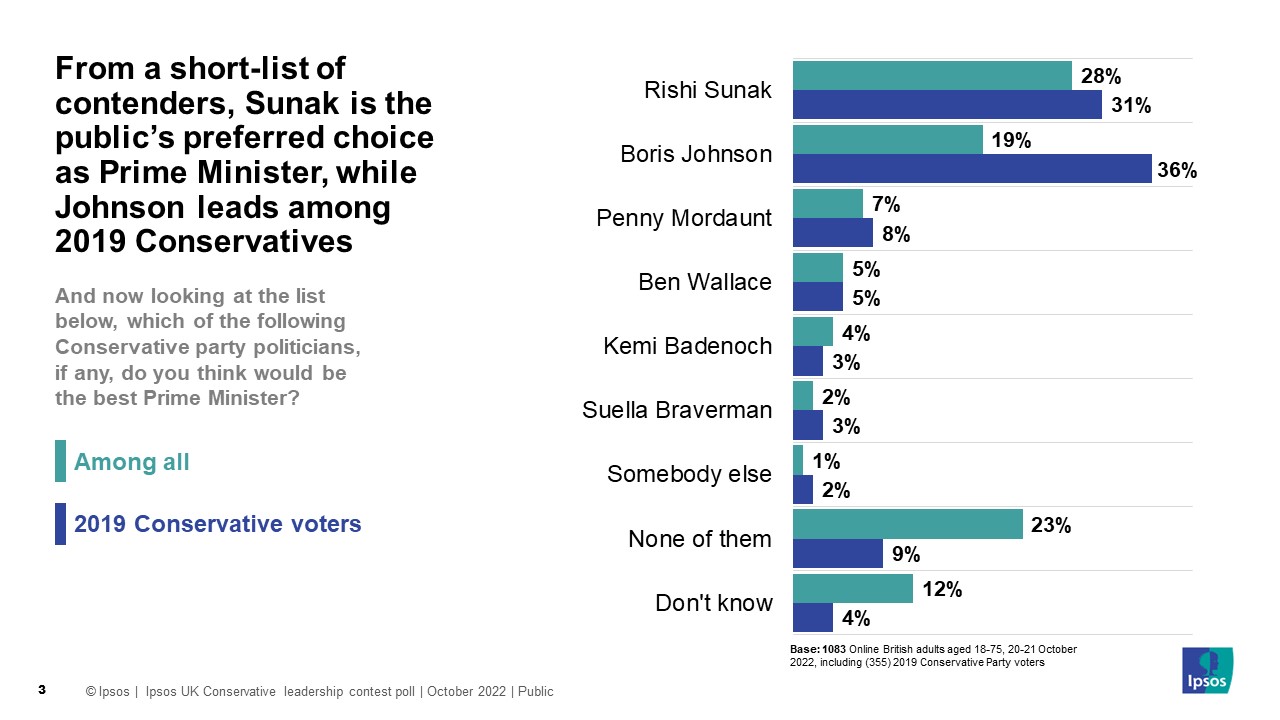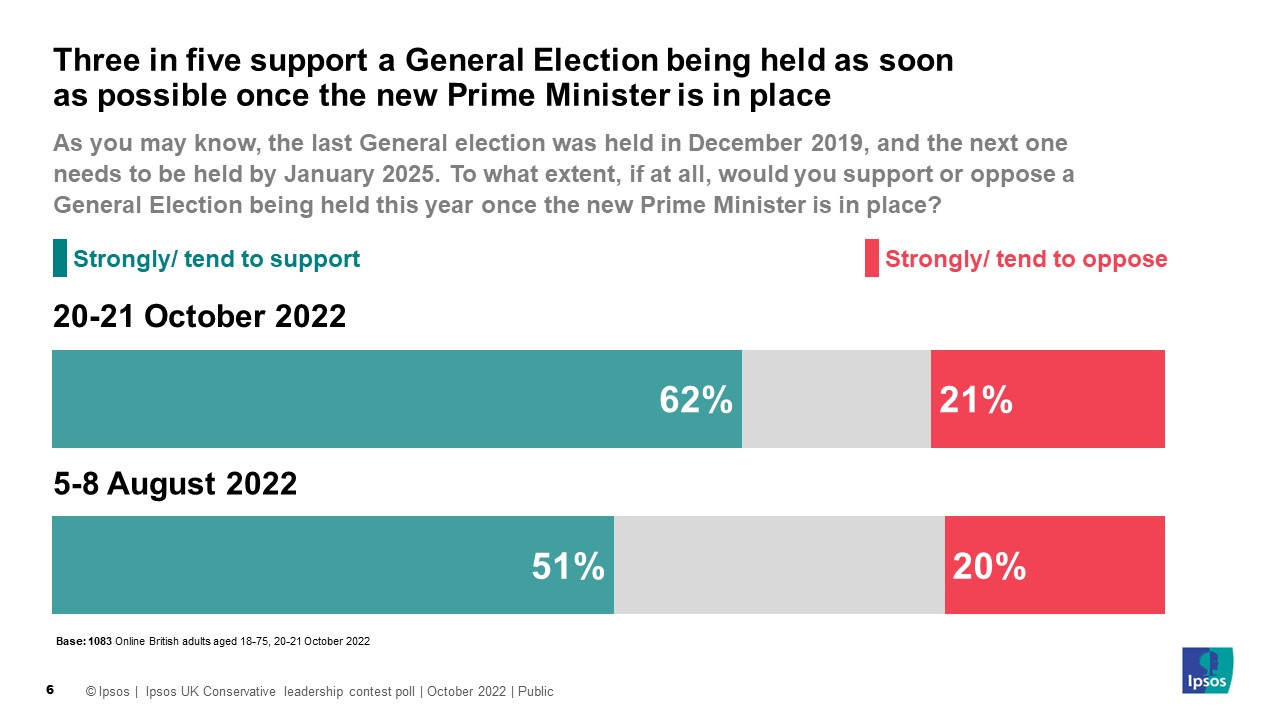Sunak leads as the public’s preferred next Prime Minister, but Johnson is ahead with Conservative voters
- Nine in ten (87%) say Liz Truss resigning was the right decision
- Three in five (62%) support a General Election once the new PM is place
- Public want to hear about candidates’ plans for the cost of living
- Majority (56%) think Keir Starmer is likely to become Prime Minister one day
New polling by Ipsos in the UK, taken 14-17 October, shows nearing three in ten (28%) picking Rishi Sunak from a field of six rivals as their preferred next Prime Minister. Nearing one in four (23%) would select “none of them”, which is higher than the proportion selecting Mr Sunak’s nearest competition, former Prime Minister Boris Johnson (19%). Other contenders received minimal public support: Penny Mordaunt (7%), Ben Wallace (5%), Kemi Badenoch (4%) and Suella Braverman (2%). Mr Wallace has since signalled his intention to not stand.
However, when looking at 2019 Conservative voters, Boris Johnson takes a 5pt lead over Rishi Sunak (36% vs. 31% for Sunak). One in ten (9%) say “none of them”, followed by Penny Mordaunt (8%), Ben Wallace (5%), Suella Braverman (3%) and Kemi Badenoch (3%).

The narrative is unchanged when looking at a wider list of 12 prompted contenders. Rishi Sunak has a 7pt lead over Boris Johnson among the public (24% vs. 17%), but Johnson has a narrow lead over his former Chancellor among Conservative voters (30% vs. 26% for Sunak). No other prompted Conservative MP receives anything more than single digit support, while one in five (22%) say “none of them”.
Results are similar when asked to pick from the field of six possible contenders who would be most likely to help the Conservatives win the next General Election. Among the public as a whole, Sunak leads Johnson (25% vs. 19%), but 2019 Conservatives are more optimistic about Johnson’s chances (33% vs. 24% for Sunak).
When asked what they would like to hear the leadership candidates discuss, the cost-of-living is at the forefront of public’s mind, mentioned by 80%. This is followed by around half wanting to hear about their plans for economic growth (48%) and public services (47%). Conservative voters from the last election are also most keen to hear about the cost-of-living (85%) and economic growth (56%) but are then more likely to mention plans for taxation (47%) and immigration (46%).
What happens after a new Prime Minister?
Once a new Prime Minister is in place, over three in five (62%) say they would support a General Election being held as soon as possible, with only one in five (21%) opposing it. This has risen from August when nearer half (51%) said they would support a General Election when the then new Prime Minister was in place. 2019 Labour voters are most supportive of going to the ballot (86%), but even Conservative voters are split on the prospect (41% support, 42% oppose).

The majority (56%) think it is likely that Keir Starmer will one day become Prime Minister (+5 from late September), while three in ten (29%) think it is unlikely (-6). 2019 Conservative voters are split on whether it is possible (44% likely, 44% unlikely).
Was Liz Truss right to resign?
Britons are near unanimous in saying that Liz Truss was right to resign as Prime Minister, with 87% saying it was the correct decision. This includes nearly two in three (64%) thinking it was “definitely” the right decision. Only 7% say it was the wrong decision. Both Conservative and Labour voters agree that it was the right move (91% for both).
Looking at the impact of Liz Truss’ premiership, seven in ten (70%) say she changed the country for the worse, while one in five (21%) think she has not made a difference and just 5% claim she has made things better. This contrast to early September, when the country was divided between 30% saying she would change it for the better, and 32% thinking for the worse.
Kieran Pedley, UK director of politics at Ipsos, says of the findings:
The next week could prove to be as tumultuous as the last, as the Conservative party weighs up whether to back Sunak, as the public’s preference, or Johnson who is the preferred choice amongst their own voters. Other contenders struggle with limited name recognition among the public. Whoever prevails will have a hefty in-tray, as the rising cost of living remains at the forefront of voters’ minds, along with the need to rebuild the Conservative brand amid calls for a General Election.
Technical note
Ipsos interviewed a representative sample of 1,083 Britons aged 18-75. Interviews were conducted online from 20-21 October 2022. Data are weighted to match the profile of the population. All polls are subject to a wide range of potential sources of error.






